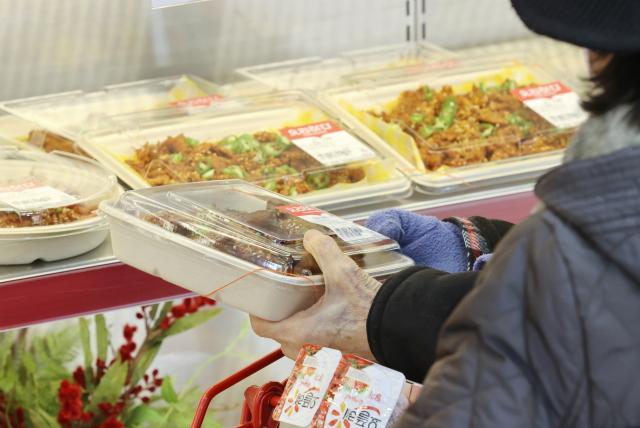
According to South Korea's statistical information service, the consumer price index for November 2023 was 112.74 (2020=100), up 3.3 percent from the same period a year ago. The consumer price index, which reflects the actual sense of inflation felt by consumers, increased for four consecutive months.
Data released by the Korea Consumer Agency on December 12 showed that the average price for Jajangmyeon, South Koreans' favorite Korean-Chinese noodle menu served with fermented black bean sauce, was 7,069 won ($5.38) in November 2023, up 8.2 percent year-on-year. The overall price increase rate for restaurant food menus was 4.8 percent, higher than the consumer price increase rate of 3.3 percent.
In a November survey of 1,000 South Koreans aged 18 years and older, conducted by the Federation of Korean Industries (FKI) and pollster Mono Research, 52.3 percent of people said that they plan to spend less in 2024 than they did in 2023. FKI said that private consumption, which had been showing signs of recovery after COVID-19, has slowed significantly this year and that it is unlikely the consumer trend will improve next year.
The main reason for reducing consumption spending is the continued high inflation (43.5 percent), followed by increased concerns about unemployment or expected income reduction (13.1 percent), increased tax and public utility charges (10.1 percent), and decreased asset income and other income (9 percent).
People said that they will start reducing their consumption spending by using less money on travel, dining, and accommodation (20.6 percent). 14.9 percent said that they will spend less on leisure and cultural life while 13.7 percent said they will buy less clothing and shoes.
Those who plan to increase their spending said that the most common reason is the increase in demand for specific items due to changes in their living environment, values, and consciousness (22.1 percent).
Copyright ⓒ Aju Press All rights reserved.




